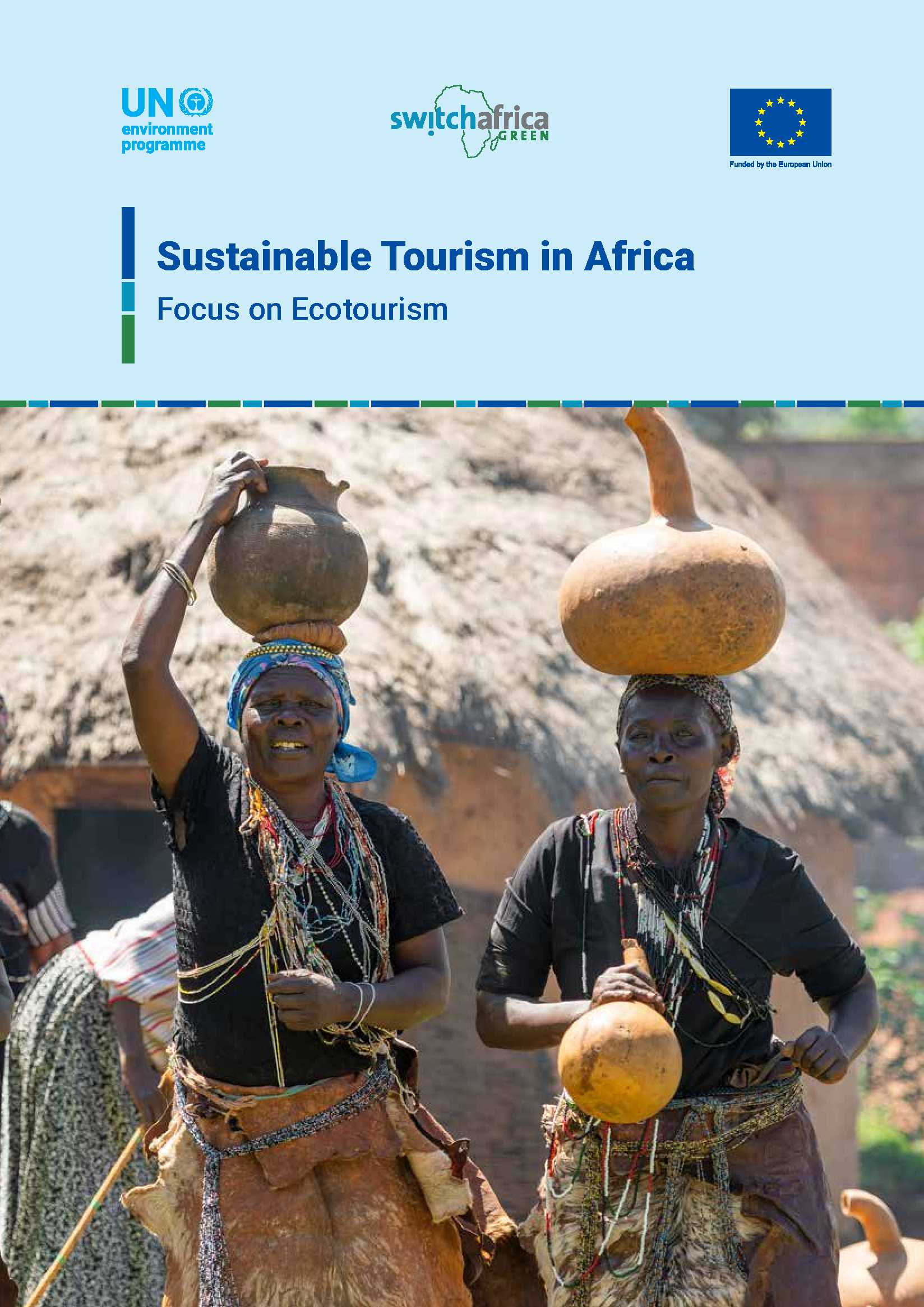Tourism is one of the key sectors driving social-economic development in Africa accounting for 8.5 per cent of GDP and 6.7 per cent of total employment in 2018. This SWITCH Africa Green Sector report presents an analysis and review of the implementation and results of the programme in the sustainable tourism sector. The analysis of the interventions and results of the SWITCH Africa Green programme activities in the sustainable tourism sector suggests that the programme has triggered positive changes that contribute to the realization of the envisaged goals. These goals are to decouple tourism growth from environmental degradation and contribute to improved human well-being. There has been a positive contribution to the capacity, and business performance, and uptake of SCP practices. Sixty-five per cent of the beneficiary enterprises reported increased sales. However, there are challenges associated with seasonality in the sector. Seventy-six per cent of the MSMEs reported that they had implemented policy changes during the project indicating positive uptake of SCP practices that include waste management policy, efficient energy-use and wateruse measures. Also, 94 per cent of the enterprises reported that the capacity of personnel had been enhanced during the project implementation period suggesting improved awareness and capacity to implement SCP practices. The results also reveal that the community-based Tourism Organizations (CBTOs) have the potential to contribute to local development through communitybased economic activities, including cultural and agro-tourism while conserving the environment.
On the social front, positive gains have been reported in terms of job creation and potential inclusive community development. About 76 per cent of the enterprises reported that 267 new green jobs had been created during the period of the implementation of the SWITCH Africa Green programme. However, there is scope to increase women and youth participation in the sector. About one-half of the enterprises noted that the programme had contributed to improving community inclusiveness, which could be attributed to the CBT initiatives implemented mainly in Kenya and Uganda.
An analysis of the environmental benefits of the SWITCH Africa Green programme by assessing three ‘SCP impact areas,’ namely: energy-use efficiency, water-use efficiency, and waste reduction, shows positive outcomes. For instance, 65 per cent and 77 per cent of the enterprises implemented energy and water efficiency interventions, respectively.

